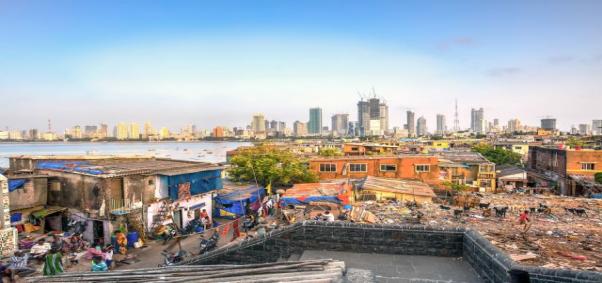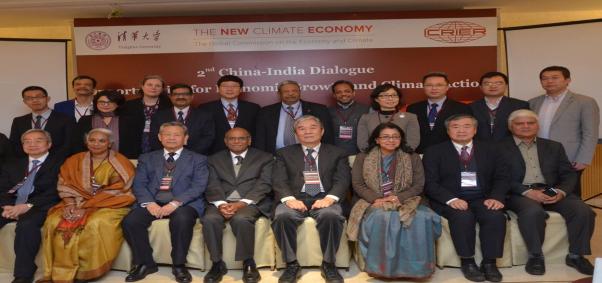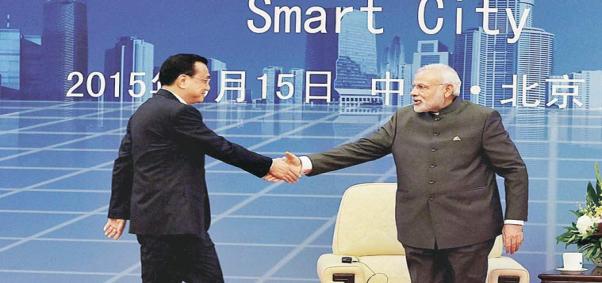
This article was published in Hindustan Times on September 2, 2016.
Naina Lal Kidwai is a member of the Global Commission on the Economy and Climate, Chairman of Max Financial Services, and Chairman of FICCI Water Mission.
The G20 economies, including India, China, the United States and the EU are currently meeting for their first summit since the Paris Agreement was reached last year, when the entire world came together to set a roadmap to limit climate change.
The G20 summit is an important moment to reaffirm the importance of the Paris Agreement and send a signal to the world that the low-carbon economy is taking root. India was instrumental in ensuring the success of the historic deal in Paris, and Prime Minister Narendra Modi is showing global leadership on climate action and clean energy. At the summit, we can further that leadership.
The G20 is a forum for the world’s largest economies to collaborate on international economic growth and finance. But what’s become increasingly clear is that climate action is indispensable for inclusive and sustainable economic growth.
Climate change directly threatens growth and development gains. The UN estimates that if we don’t take ambitious action now, the costs of adapting to rising temperatures and seas could reach 500 billion dollar per year, unravelling recent progress in reducing poverty.
But if we do act to reduce greenhouse gas emissions in the right ways, we can provide a stimulus to our economies while simultaneously reducing the risks of climate change and protecting the poorest. Investing in sustainable infrastructure, boosting energy efficiency, and stimulating innovation in clean technology and sustainable land use can promote poverty reduction and climate goals while also delivering a range of local benefits such as cleaner air, safer water and better livelihoods.
There are multiple areas where India can work with other G20 countries to accelerate the transformation to a low-carbon, resilient economy. It should push for a strong summit statement from the G20 that puts climate action in a prominent place, with specific commitments to action.
For one, the G20 countries should encourage the Paris Agreement’s early entry into force. 180 countries have signed the agreement, including India, but it doesn’t become law until 55 countries representing 55% of global emissions formally join it through their domestic processes.
India, along with others like the United States and China, has already indicated that it is will join by the end of the year. It should encourage all G20 countries to do so as well. A united front from the G20 would send a strong message to the world, including the business community, that the Paris Agreement matters today, not tomorrow.
India should also show leadership by pushing a strong agenda for fossil fuel subsidy reform at the G20. Back in 2009, the G20 agreed to phase out fossil fuel subsidies “over the medium term,” and while there has been some progress since then, it’s time to set a firm deadline for a full phase out and couple that deadline with careful and robust monitoring of progress.
And India is well placed to push for this since we are seeing first-hand the benefits of reforming these subsidies at home. In the last few years, India’s efforts to reform subsidies for petrol, diesel, kerosene, and LPG, have already decreased the budget deficit, while complementary measures have protected the poor from price changes. Earlier this year, the finance ministry proposed doubling the cess on coal, lignite and peat to $6 (Rs 400) per tonne. The money raised from the cess has been used to finance research and innovation for a low-carbon future, demonstrating leadership and placing us on a promising virtuous circle of policy reform and innovation.
Taking these learnings to the global platform of the G20 will help leaders fight against the burden of global fossil fuel subsidies, which amounted to approximately 550 billion dollar in 2014. These subsidies make bad economic sense: they drain government budgets, reduce energy efficiency and are often ineffective at reaching the poorest. By incentivising the burning of fossil fuels, they’re also a major contributor to climate change and air pollution. In India alone, air pollution associated with fossil fuels is responsible for more than half a million premature deaths every year. Simply put: the case is clear when we weigh the benefits of reform versus the costs of the current subsidies to our health, our climate, and our economic well-being. India should push the G20 to set a deadline for phase out of these subsidies by 2025 at the latest so that the rest of the world may follow.
This green economy is already one we understand in India. Our Paris commitments, especially those on clean energy, were ambitious and we continue to drive a strong climate agenda, including in our core role with the BRICS Bank. In April 2016, the Bank launched its first four investments, worth 811 million dollar, all for clean energy projects. India is also working hard to meet its ambitious goals of 175 GW of wind and solar energy by 2022. And our leadership along with France under the International Solar Alliance which was announced in Paris – a brilliant announcement and commitment by the Indian government – should be watched closely.
But we can – and should – do more. We should also formally join the Paris Agreement as soon as possible: India doing so would trigger early entry into force of the Agreement for the rest of the world.
The G20 gives us an opportunity to show we are at the forefront of climate action. We should seize it.






